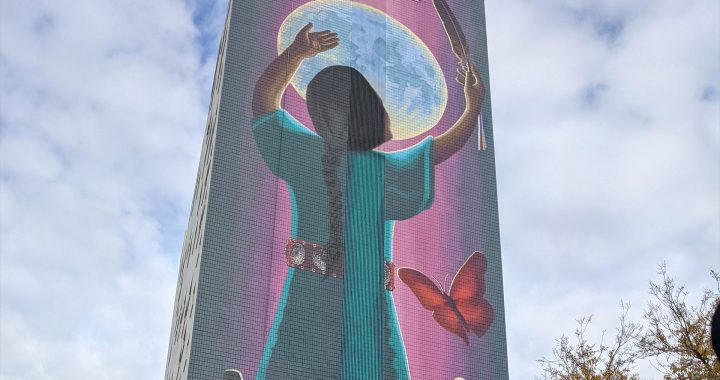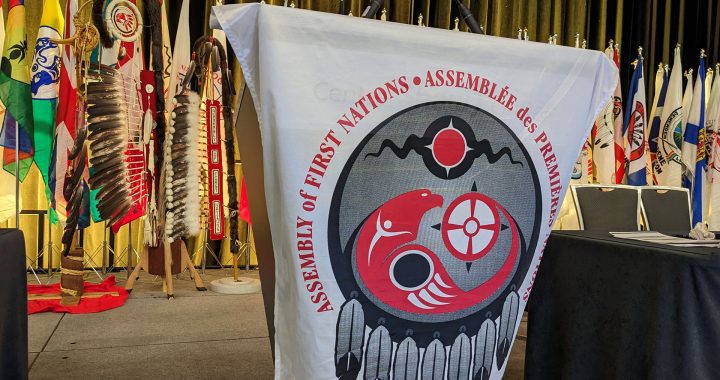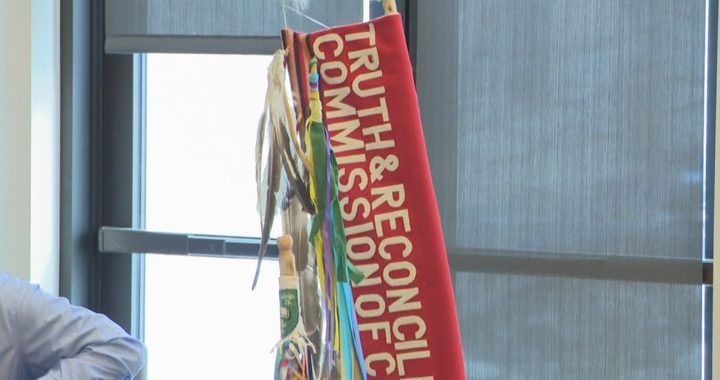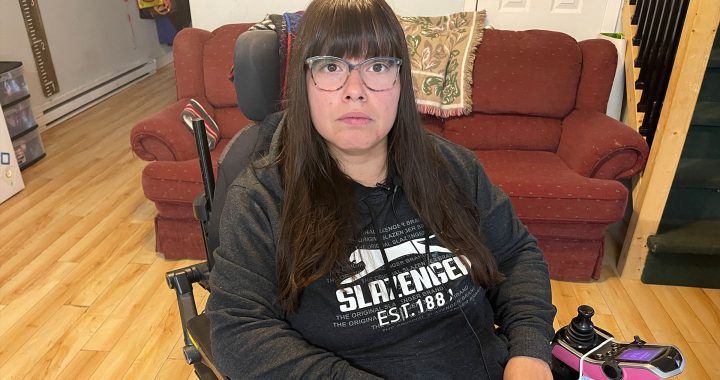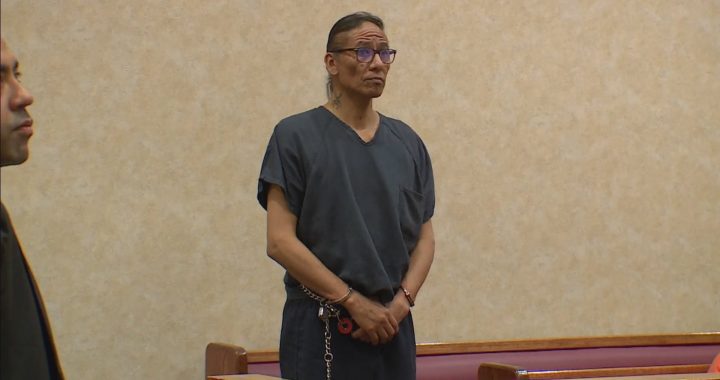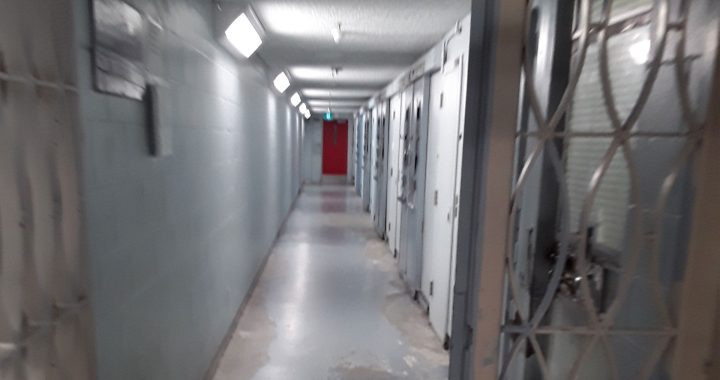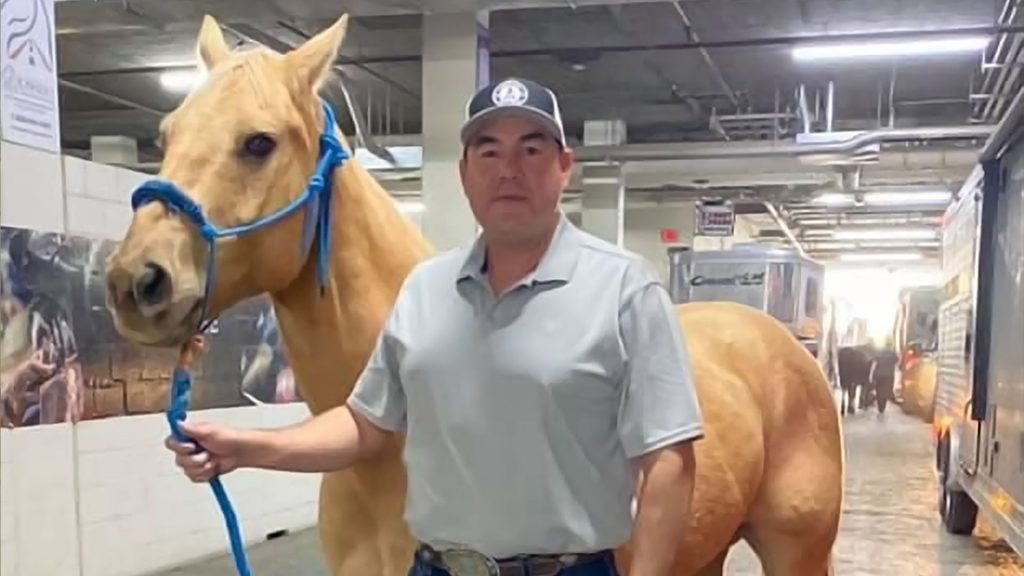
Jon Wells died Sept. 17 while in the custody of Calgary police officer. Photo: APTN File
Warning: This story contains distressing details, please read with care
The police oversight agency in Alberta has released disturbing information about the fatal police arrest of Jonathan Lee Wells last week in Calgary.
The Alberta Serious Incident Response Team (ASIRT) said Wells, 42, died on Sept. 17 after city police said they were called to remove a man from the Carriage House Hotel and Conference Centre at around 1 a.m.
ASIRT said a lone officer located a man in the lobby acting “erratically” and attempted to de-escalate the situation.
“The interaction between the male and the officer was captured on body-worn camera,” ASIRT said in a news release Wednesday. “The male is standing with his hands in full view and does not possess any weapons.
“The officer orders the male to leave the lobby by issuing commands such as ‘out’ and ‘walk out’. The male continues to stand at his location in the lobby and act in a confused fashion, such as attempting to pick up items off the floor that were clearly non-existent.”
Read More:
11 days and 6 Indigenous people have died after coming in contact with police across Canada
After roughly 30 seconds, the release says the officer pointed his conducted energy weapon (TASER) at the male and ordered him to leave the lobby.
“The male raises his hands and confirms he’ll leave and asks the officer not to shoot him,” the release continues. “The male then begins to leave the lobby with the officer still pointing the weapon at him.
“The male is walking slowly towards the main door with his hands raised while stating to the officer, I don’t want to die. The lone officer tells the male to stop talking and continues to point the weapon at him.”
That’s when two more officers arrive on the scene, the release says, and Wells stops walking. The first officer holsters the Taser and attempts to grab Wells, the release adds.
“At no point during the interaction had the male been identified, nor was he ever told he was being detained or under arrest,” the release notes. “The male physically resists being grabbed and then is tackled by officer 2, who then punches the male in the head while both are on the ground.
“During this time, officers 1 and 3 deploy their (Tasers).”
Read More:
Blood Tribe man killed in altercation with police
For the next three-and-a-half minutes or so, the three officers and Wells are “involved in a physical altercation with various uses of force resorted to by the officers. Once the male is detained on the floor, handcuffs and leg restraints are applied,” the release says.
More officers arrive, the release notes, and Wells is observed bleeding from the mouth and vomiting. A spit mask is applied while the male is lying face down on the floor, the release added.
Emergency responders arrive and inject Wells with a sedative, the release says, about seven minutes after he was handcuffed.
“This is administered to the male while he is still lying face down. The male is then left face down in handcuffs, leg restraints and a spit mask for about another three minutes until it is noted that he is unresponsive. The male was then provided medical care but declared deceased at the scene.”
ASIRT, which takes over investigations when memberd of the public are injured or killed by police, says it will examine the use of force applied by the officers.
Further information
The agency says it will continue its investigation and won’t be releasing any further information.
Wells was a competitive steer wrestler and president of the Blood Tribe Agricultural Society in the Kainai Blackfoot Nation, approximately 200 kilometres south of Calgary.
His obituary uses his traditional name “Saapa’taa” and describes him as a dedicated cowboy who won the Indian National Finals Rodeo Steer Wrestling Tour in 2012.
Wells is the 8th First Nations person killed while interacting with RCMP and municipal police officers since Aug. 29.
The deaths have upset and angered Indigenous leaders and politicians who have called for more accountability from police. They sparked an emergency debate in Parliament last week led by the NDP.
Members of wellness patrols on two reserves, formed to reduce incidents of lethal force, have told APTN News their local police services did not call them as usual when responding to recent calls that involved First Nations people and were fatal.




